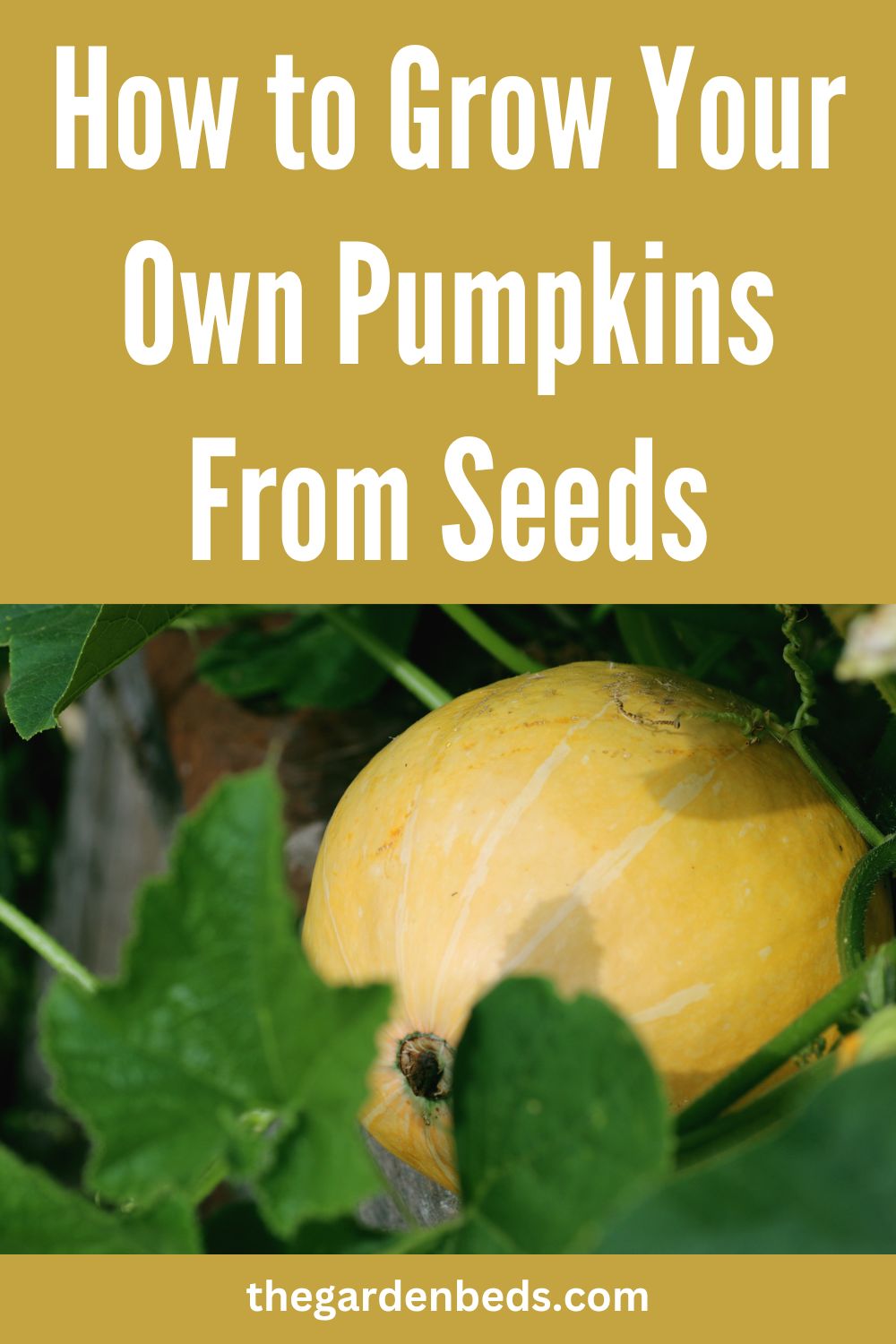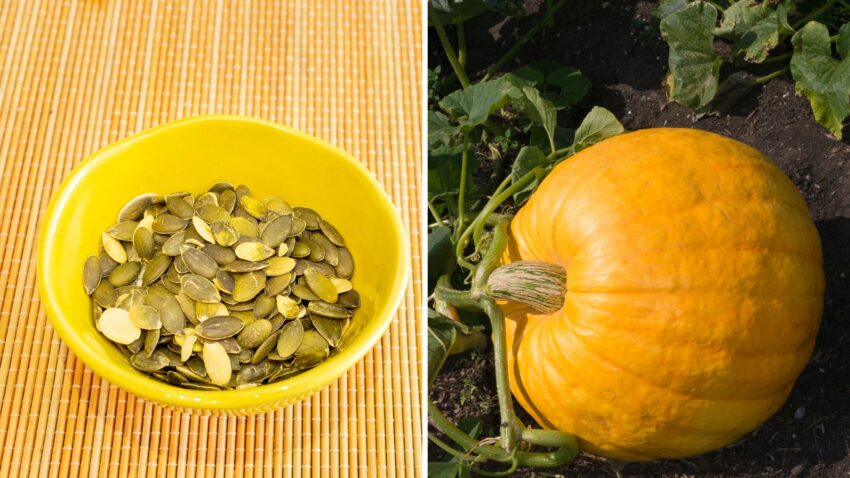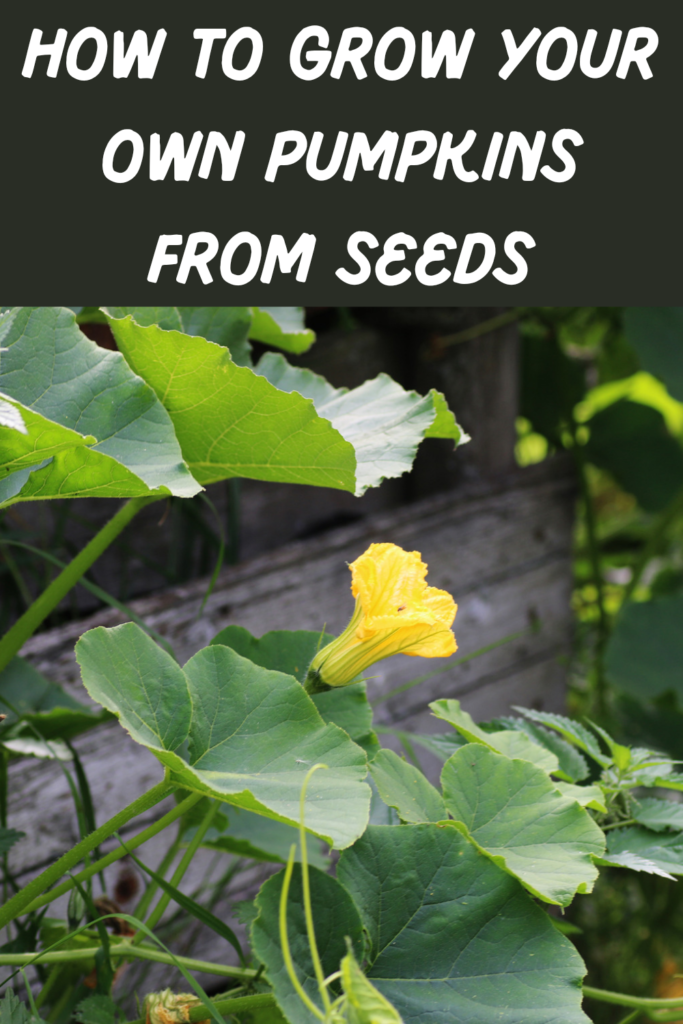Nothing is more rewarding than giving the gift of a homegrown pumpkin to someone special. And, thanks to the expanded selection of heirloom and modern varieties available now, you can grow pumpkins with different colors including white, green, pink and yellow. Learn how easy it is to grow pumpkins from seeds in this blog post!
When to Plant Pumpkins
Pumpkin plants are best planted from late May to early July, so you can enjoy their fruit during the fall. You can choose store-bought seeds that are ready for cultivation or collect the seeds from a pumpkin that you just carved—it’s a relatively easy task. Once you have decided on a location to plant your pumpkin seeds, keep in mind that you’ll need enough outdoor space to space out the plants. If space is limited in your backyard, it might be wise to stick to planting pumpkin seedlings at a patch or buying them at a store.
How to Plant Pumpkin Seeds
1. Prep Your Seeds
If you’re planting pumpkin seeds, there’s some prep work to do before you plant them in the ground.
Start by rinsing off the pulp. Put the seeds in a colander and rinse them with cold water. Then, select the biggest seeds and spread them out on a paper towel to dry. This ensures they’ll have a better chance of growing and flowering.
If you’re not ready to plant seeds right now, there is a simple way to store them. Simply place the envelope with the seeds in the back of your refrigerator, and they’ll stay fresh until you’re ready!
For those that want to carve pumpkins, the best type of pumpkin seed is Autumn Gold. If you’re looking for something a little more unique, Dill’s Atlantic Giant can grow pumpkins upwards to 200 pounds. Casper is great if you want an all-white pumpkin.
2. Pick a Planting Site
Pick a planting site with ample sunlight or shady areas, make sure the soil drains well because pumpkins like soil that is not too moist.
Before planting anything, it’s important to have healthy soil. Check the pH level and make sure it’s between 6 and 6.8. It might also be a good idea to clear the area of any pests or weed – “You can use weed block two weeks ahead of planting, which will allow the weeds to die naturally,” Watson suggests.
3. Sow Pumpkin Seeds in the Soil
When planting pumpkins, make sure to plant the seeds a one inch deep. “Pumpkins grow best when you plant the seeds directly into the ground about an inch deep,” adds Watson.
How to care for Pumpkin
Watering Frequency
When your plants are flowering, they need a lot of water. After pollination, give them at least 1” of water every week. If the soil on your plants is sandy and drains quickly, or you live in a dry climate, these measures may not be enough; you may need to water slightly more than a week.
Fertilizing
Cucurbits are high-maintenance plants because of the prolific vine growth as well as their large fruits. They benefit from a continuous fertilizer release, with a nitrogen-based formulation for the early seasons and a phosphorus formulation for harvesting.
Pest & Disease Problems
Insect pests include squash bugs, squash vine borers, cucumber beetles, aphids, cutworms, thrips, and leafminers. The best defense uses companion plants like dill, oregano, or marigolds, allowing them to deter pests naturally. Powdery mildew is the most commonly seen disease problem, exacerbated by wet conditions. Monitor plants often for diseases and then treat them immediately if noticed.
Harvesting
If you want to harvest pumpkins, you should leave them on the vine until they’re fully ripe. They are ready to harvest when the outside rind has fully developed color and the skin has hardened, along with a withering stem. You can cut the pumpkin from its stem 3 or 4 inches away from the pumpkin, using a knife or pruners.



